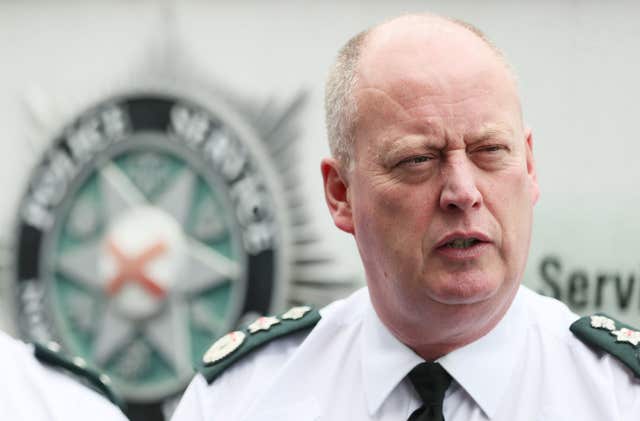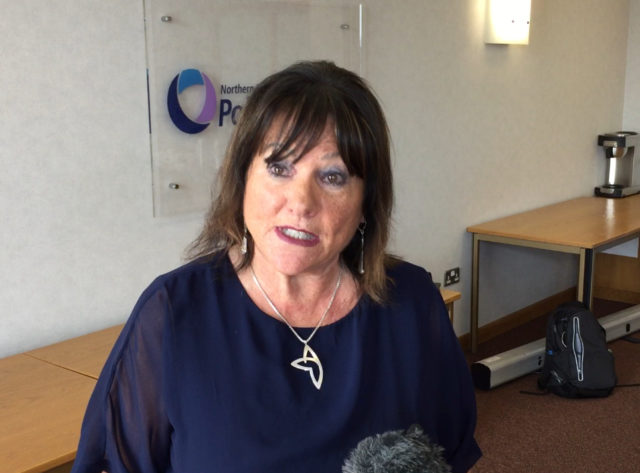
Police have asked people in Northern Ireland whether they would support commanders charging for more services.
The Police Service of Northern Ireland (PSNI) already charges for a small number of services, such as providing additional patrols at profit-making commercial events.
In conjunction with the Policing Board, the PSNI is now asking the public whether it would support widening the scope of its paid-for work.
It is one of a number of questions posed in a new consultation exercise focused on how the PSNI manages its resources in the face on ongoing budget cuts.

Chief Constable George Hamilton insisted the police would never contemplate charging for core crime-fighting services, and people would not end up paying for an officer to attend the report of a crime.
He said the police instead wanted to gauge the public view on widening the policy of charging public and commercial organisations for some ancillary services, such as reassurance patrols in certain areas.
Launching the consultation in Belfast, Mr Hamilton said he was not publicly advocating the change, rather asking for people’s opinions.
“There are a lot of police functions and there’s a reducing budget and we are asking people what is it that you would like to prioritise and how would you carve up the budget,” he said.
The chief constable stressed the issue of charging was only one of dozens of questions posed in the “stock taking” review of how police resources are allocated.
“There is a question at the end about whether or not there is an appetite for charging for policing services,” he said.
“We are not advocating for that, we are just simply saying to the public we want to share this dilemma with you and we want to take your views on the way forward on how policing services are delivered locally.”
He added: “It’s (charging) used in a very small number of cases and I guess the question is, is there an appetite to extend that?”
The landmark 1999 Patten report on reforming police in Northern Ireland recommended giving local councils the power to raise additional ratepayer funds to pay for added policing services in their respective districts. The measure was never rolled out.
Mr Hamilton said he had a personal view on the issue but declined to share it, insisting to do so would “contaminate” what needed to be an open and objective consultation.
The 10-week exercise uses an interactive online tool to allow people to select what they view as policing priorities in their area.
Mr Hamilton said the exercise was a response to the changing nature of policing in the last decade, with acquisitive crimes such as theft on the decrease but officers having to deal with many more vulnerability and health-related cases.
He noted that police respond to 150 mental health-linked incidents each day in Northern Ireland.
The region’s top officer said cyber-crime also now takes up many hours that were traditionally spent on the beat.
In light of the changing landscape, Mr Hamilton said it was necessary to assess what the public priorities were.
“We now have to consider how we can future-proof our service so that we can continue to deliver for our local communities,” he said.

Chair of the Northern Ireland Policing Board, Anne Connolly, said: “It is important that the public have an opportunity to contribute to the discussion on the future delivery of their policing service and better understand the types of issues that the PSNI is facing in deciding where and how resources are used.”
For more information on the consultation visit https://bit.ly/2wmWWoS
A series of public consultation meetings will be hosted across the region in the coming months to provide assistance to those wishing to complete the exercise.


Comments: Our rules
We want our comments to be a lively and valuable part of our community - a place where readers can debate and engage with the most important local issues. The ability to comment on our stories is a privilege, not a right, however, and that privilege may be withdrawn if it is abused or misused.
Please report any comments that break our rules.
Read the rules hereComments are closed on this article